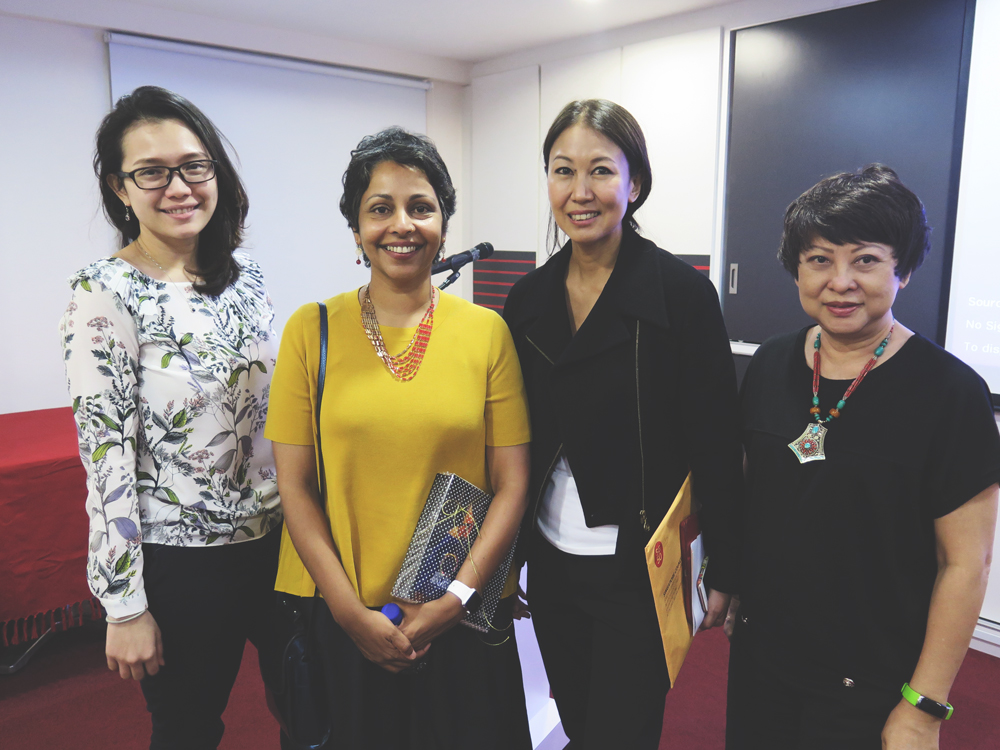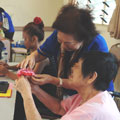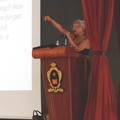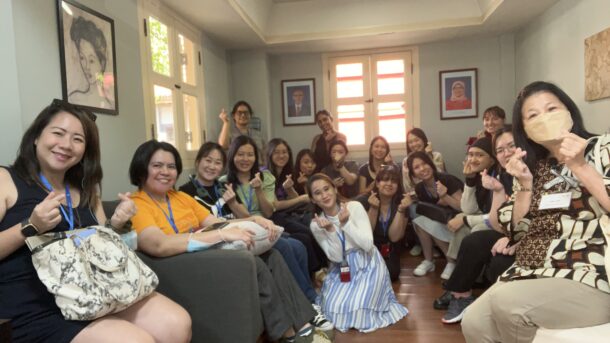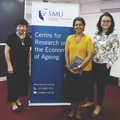
How Ready are Women for Retirement in Singapore?
We all know that Singapore has one of the fastest ageing populations in the world. The question is, are we prepared?
SCWO collaborated with Centre for Research on the Economics of Ageing (CREA) to hold a focus group discussion to discuss the issue of Women’s Preparedness for Ageing and Retirement. A total of 29 people, including representatives from various member organisations, attended the event held on 8th May.
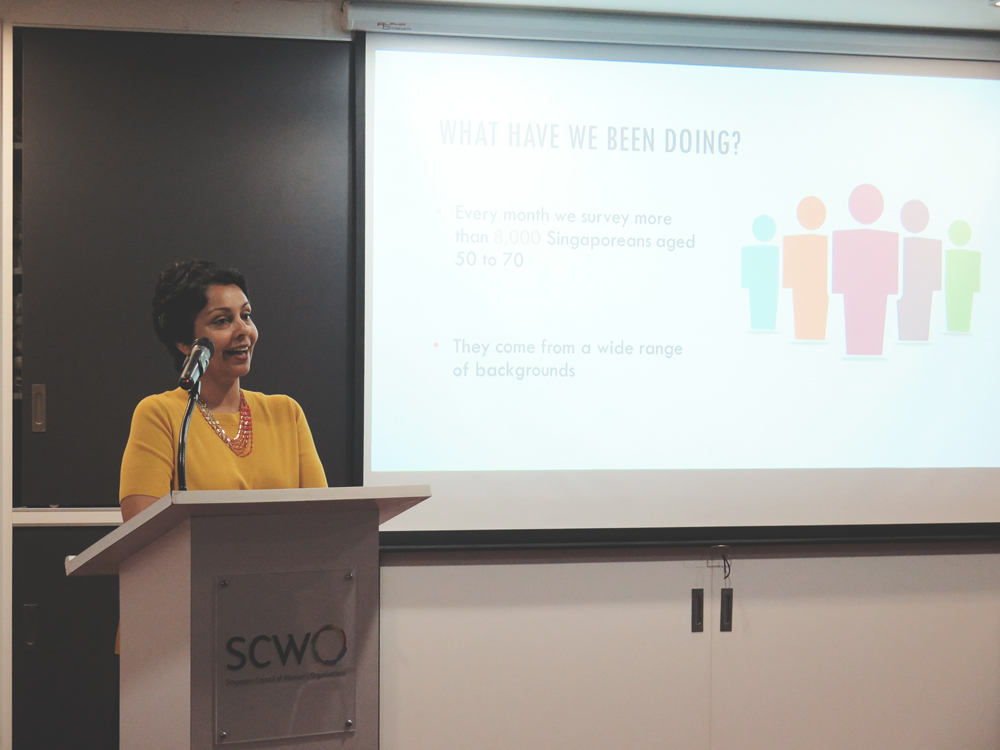 CREA surveyed more than 8,000 Singaporeans aged 50 to 70 who came from various backgrounds and Professor Rhema Vaithianathian, the Co-Principal Investigator, shared some of their findings with the audience. CREA was established in 2014 to provide rich insight into how well-prepared Singaporeans are for their old age. The information obtained will help Singaporeans better understand their levels of preparedness and also help inform government policy to better prepare citizens for old age.
CREA surveyed more than 8,000 Singaporeans aged 50 to 70 who came from various backgrounds and Professor Rhema Vaithianathian, the Co-Principal Investigator, shared some of their findings with the audience. CREA was established in 2014 to provide rich insight into how well-prepared Singaporeans are for their old age. The information obtained will help Singaporeans better understand their levels of preparedness and also help inform government policy to better prepare citizens for old age.
On a more positive note, Professor Vaithianathan shared that women are not just living longer, but staying healthy and economically active for more years. Of the surveyed women, 3 out of 4 women say that they are in excellent /very good or fair health.
On a more worrying note, however, CREA’s study shows that women feel financially less well-prepared for their retirement than men. In particular, single women among the 50-59 age group, feel less well-prepared than married women. A higher number of single women also expect to end up in a nursing home, compared to married women.
The survey findings also point out that despite the same education levels, women are not earning as much as men. For every dollar a man earns, a woman earns 80 cents. The income difference is vital to address because this reduces a female’s ability to be prepared for retirement.
More women expect themselves to continue in the workforce for longer periods. Some are in the workforce due to their husband’s poor health. Women are expected not just to work but to also take on the role of a caregiver. In other words, a man’s health is a woman’s problem.
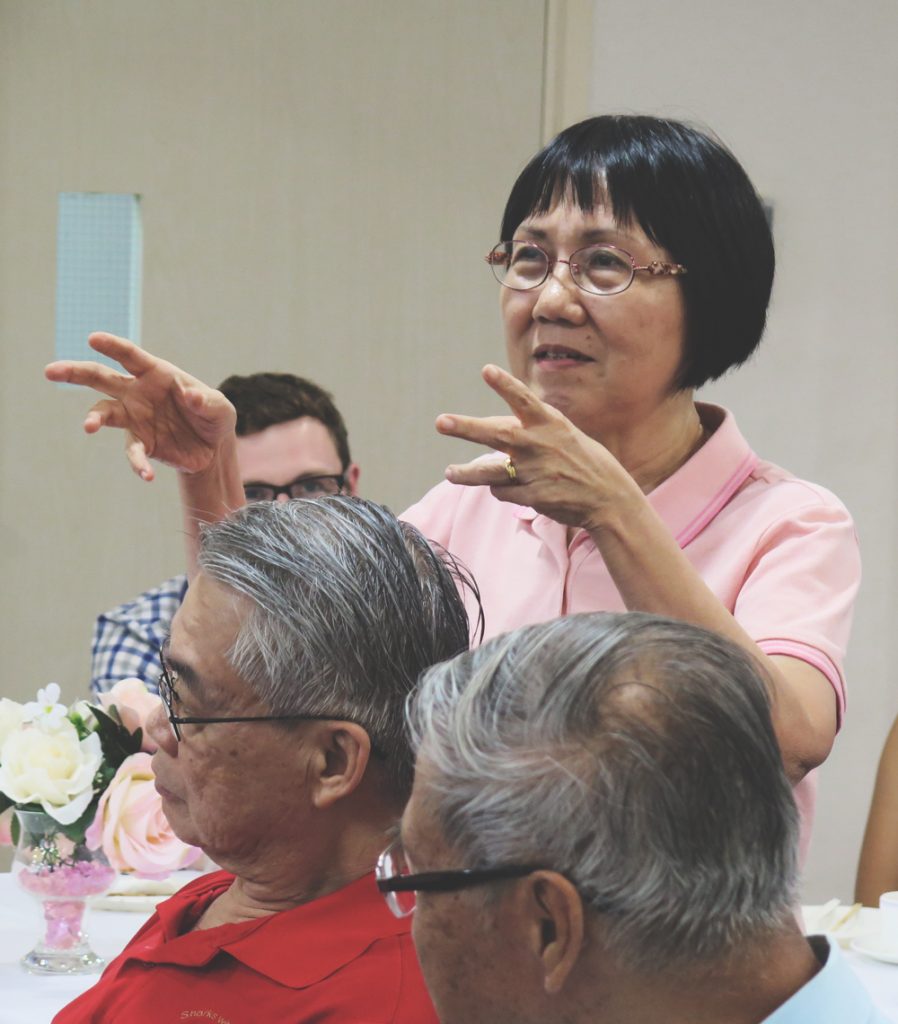 After the presentation of the study and its findings, members of the audience were engaged in a lively discussion on the issues surfaced. The session ended with organisations discussing on what more can be done to help women prepare for retirement.
After the presentation of the study and its findings, members of the audience were engaged in a lively discussion on the issues surfaced. The session ended with organisations discussing on what more can be done to help women prepare for retirement.
e all know that Singapore has one of the fastest ageing populations in the world. The question is, are we prepared?
SCWO collaborated with Centre for Research on the Economics of Ageing (CREA) to hold a focus group discussion to discuss the issue of Women’s Preparedness for Ageing and Retirement. A total of 29 people, including representatives from various member organisations, attended the event held on 8th May.
CREA surveyed more than 8,000 Singaporeans aged 50 to 70 who came from various backgrounds and Professor Rhema Vaithianathian, the Co-Principal Investigator, shared some of their findings with the audience. CREA was established in 2014 to provide rich insight into how well-prepared Singaporeans are for their old age. The information obtained will help Singaporeans better understand their levels of preparedness and also help inform government policy to better prepare citizens for old age.
On a more positive note, Professor Vaithianathan shared that women are not just living longer, but staying healthy and economically active for more years. Of the surveyed women, 3 out of 4 women say that they are in excellent /very good or fair health.
On a more worrying note, however, CREA’s study shows that women feel financially less well-prepared for their retirement than men. In particular, single women among the 50-59 age group, feel less well-prepared than married women. A higher number of single women also expect to end up in a nursing home, compared to married women.
The survey findings also point out that despite the same education levels, women are not earning as much as men. For every dollar a man earns, a woman earns 80 cents. The income difference is vital to address because this reduces a female’s ability to be prepared for retirement.
More women expect themselves to continue in the workforce for longer periods. Some are in the workforce due to their husband’s poor health. Women are expected not just to work but to also take on the role of a caregiver. In other words, a man’s health is a woman’s problem.
After the presentation of the study and its findings, members of the audience were engaged in a lively discussion on the issues surfaced. The session ended with organisations discussing on what more can be done to help women prepare for retirement.
